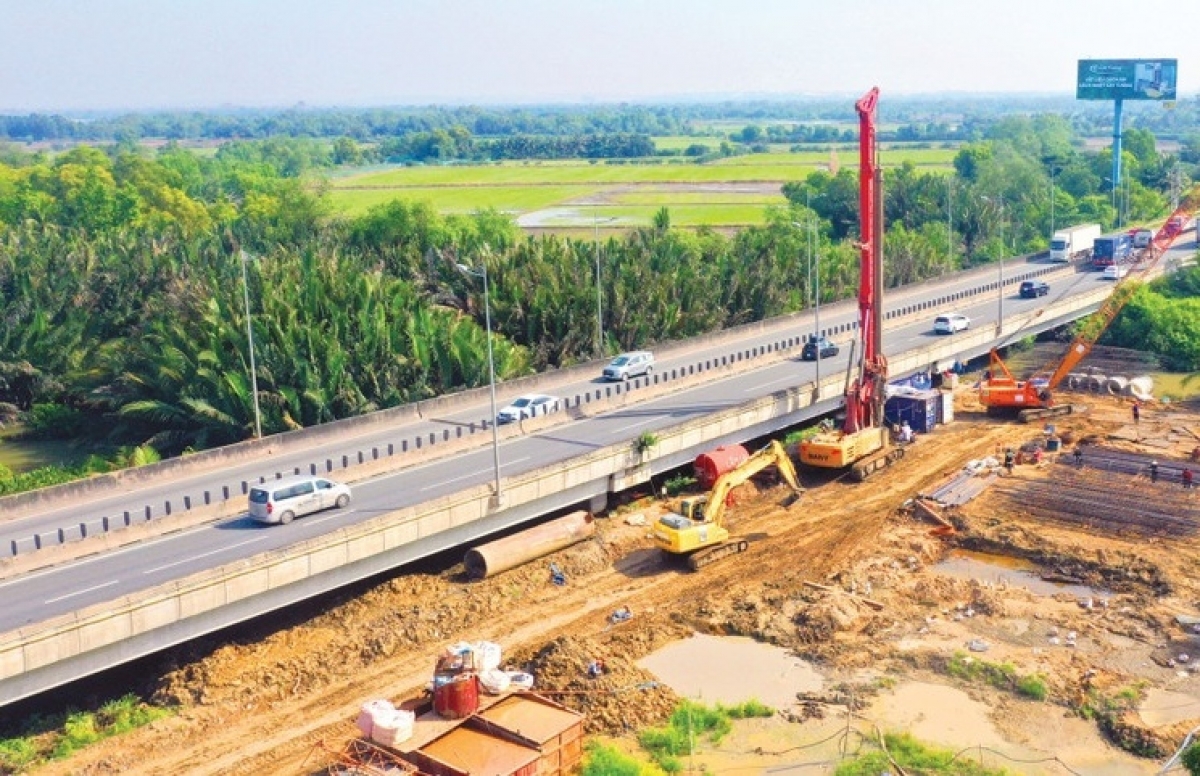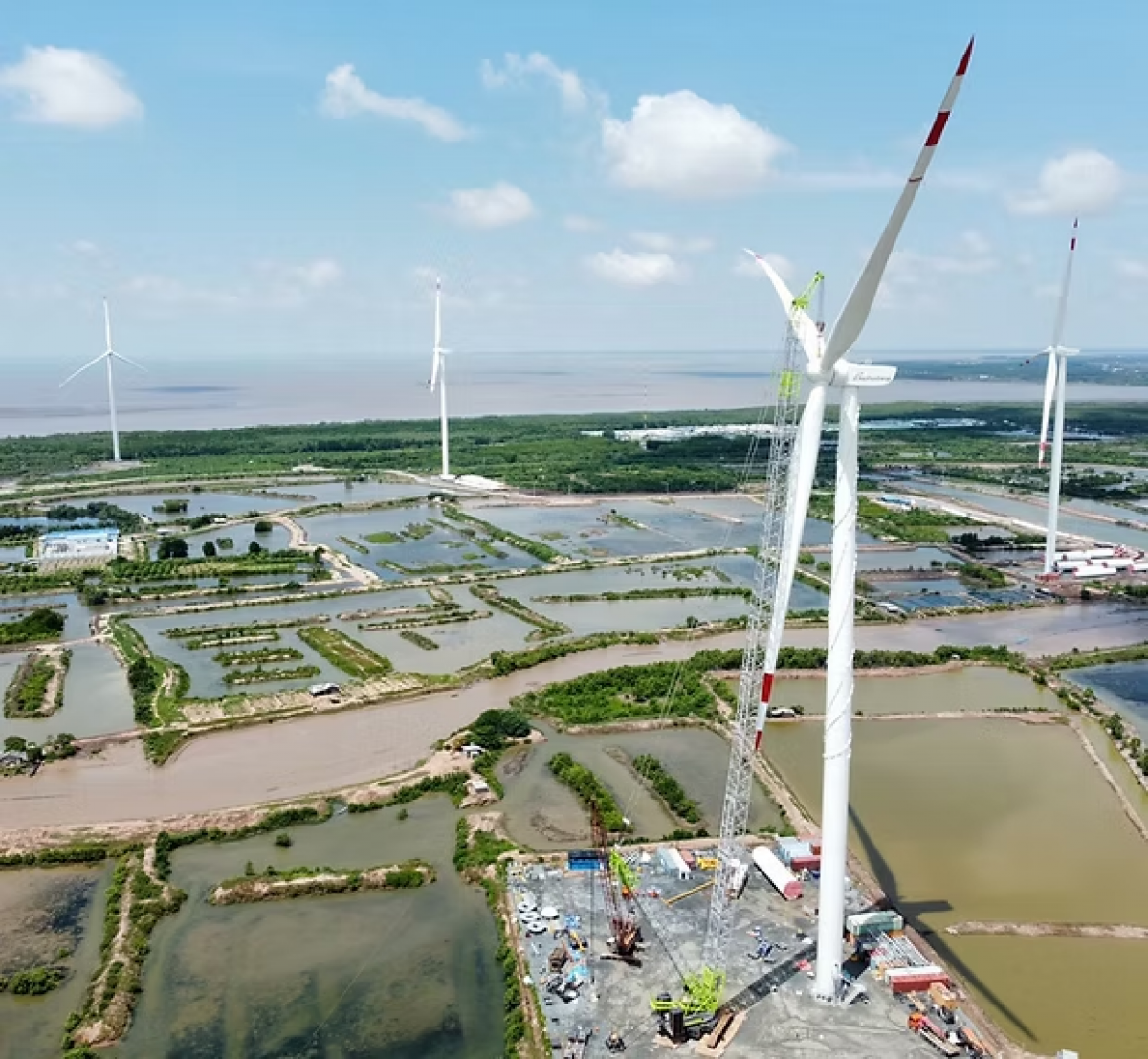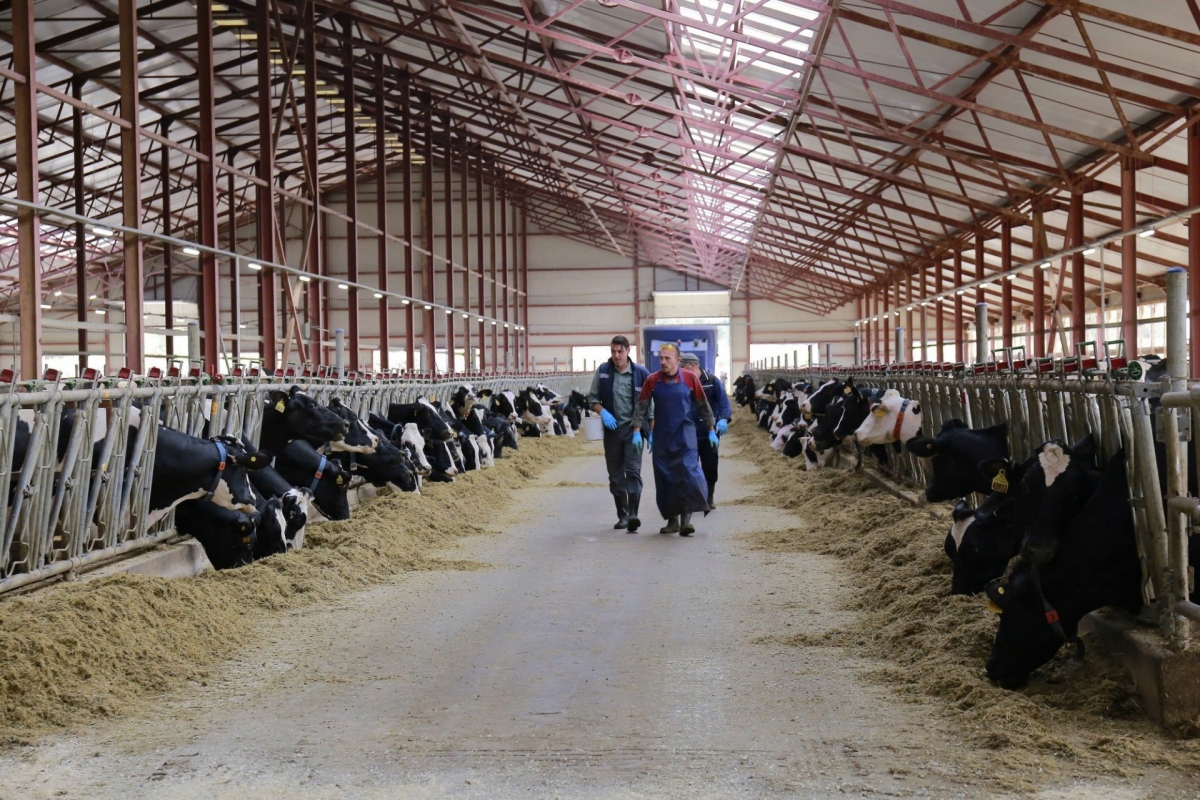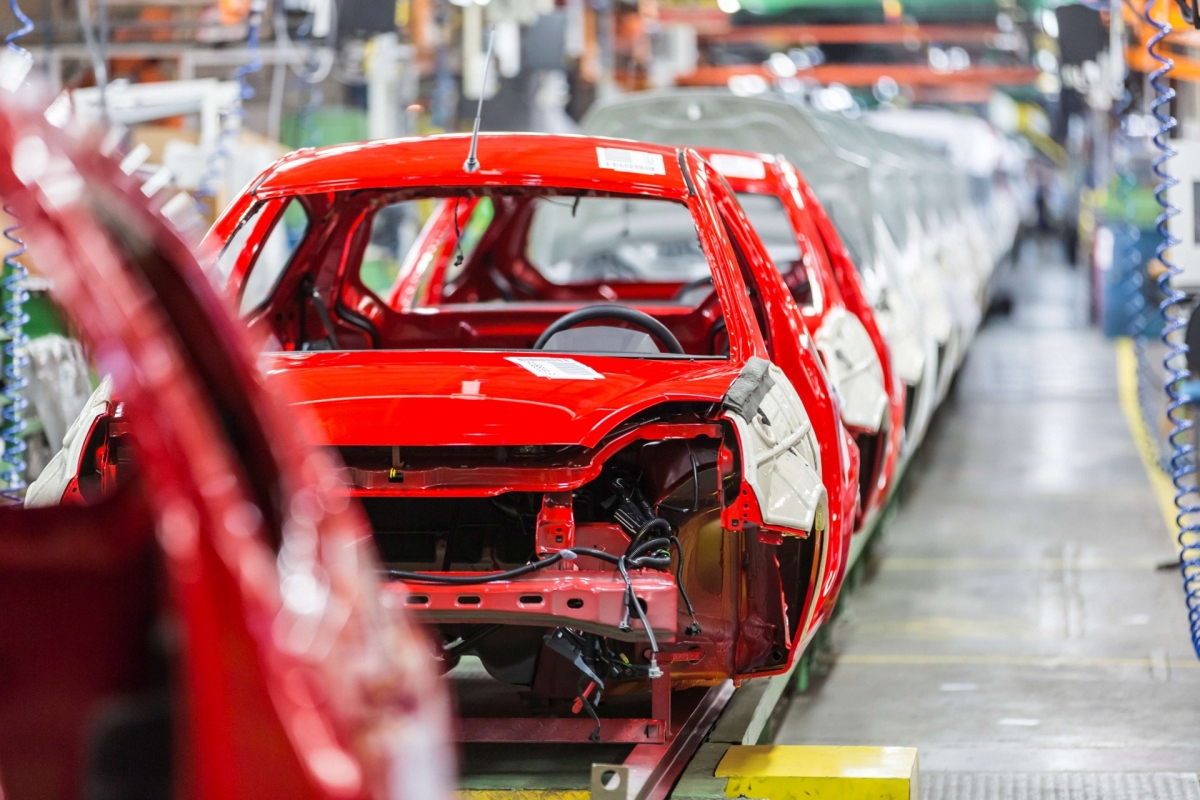INTERNATIONAL INVESTMENT
AND PORTAL
A major campaign to collect harmful plastic waste from the river has been launched in the Mekong Delta city of Can Tho, intending to raise public awareness of the need for environmental protection.
The United Nations Development Programme (UNDP), in collaboration with Can Tho People’s Committee and The Ocean Cleanup, a non-profit firm providing environmental engineering solutions, launched an initiative on September 18 called, 'Green Heroes, Clean Tech' that focusses on collecting rubbish from the Can Tho River.
The launch was attended by representatives from Can Tho authorities, local students and residents.
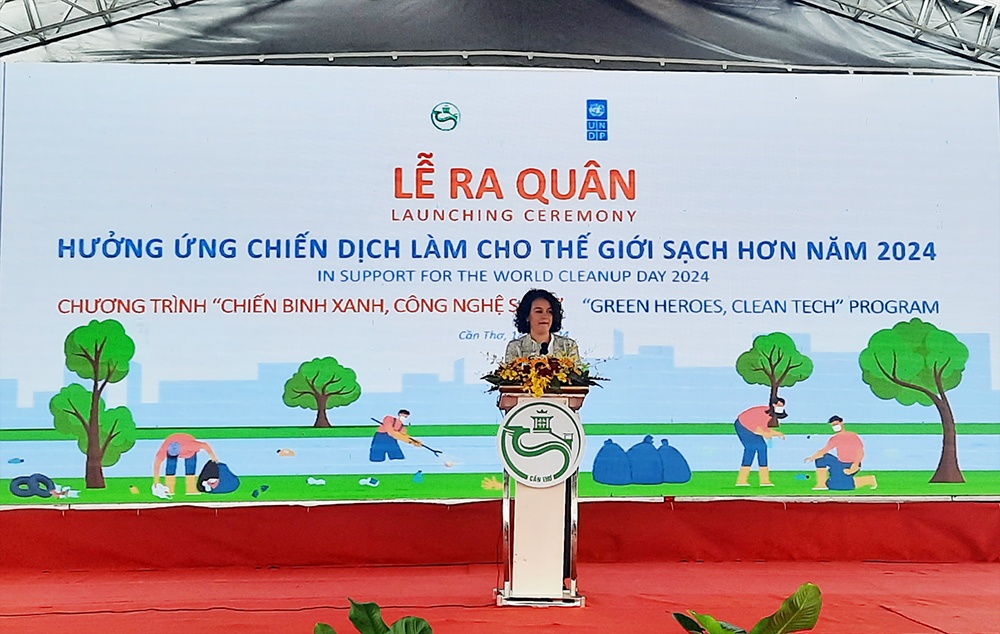 Dzeneta Mulabegovic, strategic advisor, UNDP Vietnam
Dzeneta Mulabegovic, strategic advisor, UNDP Vietnam
"This campaign has been an important influence and created change for the entire community," said Duong Tan Hien, Deputy Chairman of Can Tho People’s Committee. "Activities include rubbish collection on rivers and canals and tree planting. We have been initiating schemes to collect, classify, and treat household waste and plastic waste at the source, while also disseminating environmental protection laws."
In 2021, Vietnam generated approximately 2.93 million tonnes of domestic solid waste annually, with 70,000 tonnes (around 2.5 per cent) leaking into waterways. Studies have indicated that rivers contribute the most to ocean plastic pollution.
According to figures from 2019, Can Tho city produced 650 tonnes of waste each day. Despite a high collection rate of 85 per cent, the city still struggles to manage waste leakage into waterways, such as floating markets, rivers, and lakes. Floating rubbish in the Can Tho river is quite common, affecting the city's tourism industry and related livelihoods.
"Therefore, addressing this issue requires short-term and long-term solutions," said Dzeneta Mulabegovic, strategic advisor for UNDP Vietnam.
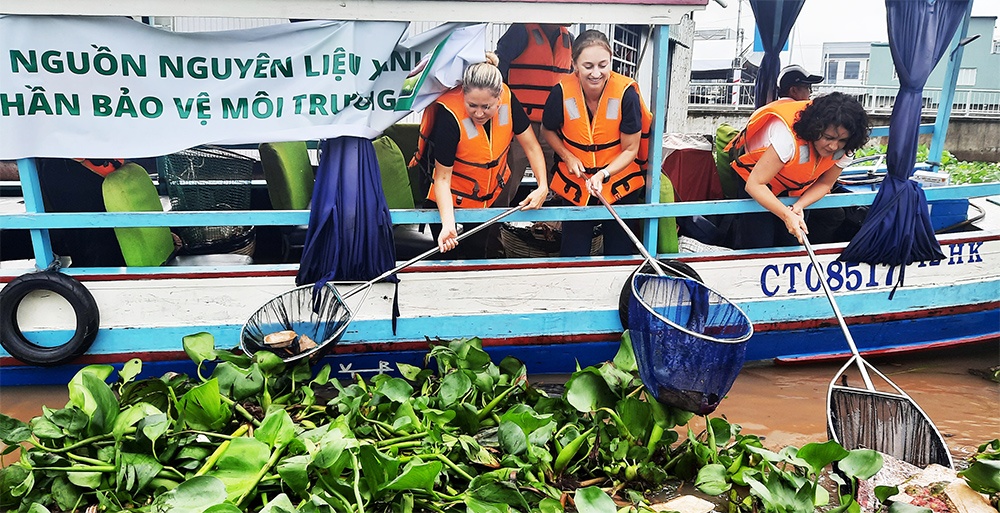
According to Mulabegovic, the deployment of automated systems that collect waste from the river, when it can then be processed by city waste management systems, is vital for the prevention of plastic-based ocean pollution.
"Can Tho has already witnessed one such promising initiatives, 'The Interceptor 003' from The Ocean Cleanup," she said.
The Inceptor 003 is an automatic waste collecting machine in the Can Tho river and is the first scalable solution to prevent plastic from entering the world’s oceans via its rivers. The Interceptor 003, at its optimal capacity, can collect up to 50 tonnes of waste per day.
Can Tho is the first city in the Mekong Delta region and one of 15 global locations applying advanced technology to reduce plastic pollution in the ocean on rivers through the installation of waste interceptors and river barriers.
"We would like to call for the participation of communities, individuals, and organisations to join our 'Green Heroes, Clean Tech' initiative as we work towards cleaner rivers, canals, and lakes in our cities," said Mulabegovic.
"Each individual can contribute to stopping plastic pollution at its source. Small efforts can lead to significant transformations, and everyone can be a hero in fighting plastic pollution," she added.
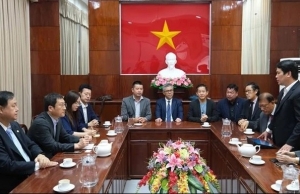 Korean Energy Agency seeks investment opportunities in Can Tho
Korean Energy Agency seeks investment opportunities in Can Tho
Ha Vu Son, Director of the Department of Industry and Trade of the Mekong Delta city of Can Tho, on July 18 received a delegation of the Korean Energy Agency (KEA) led by its President Lee Sang-hoon who came to seek investment opportunities in the city.
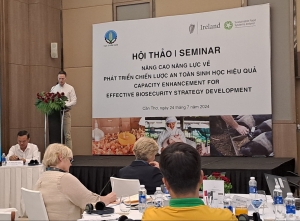 Seminars on livestock biosecurity to be held in Can Tho and Hanoi
Seminars on livestock biosecurity to be held in Can Tho and Hanoi
Seminars on sustainable production methods and biosecurity in the livestock industry, supported by the Embassy of Ireland in Vietnam, will be held in Can Tho on July 24 and in Hanoi on July 26.
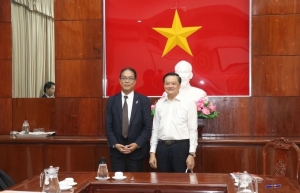 Japan to sponsor over 28 million USD for Can Tho city's smart city project
Japan to sponsor over 28 million USD for Can Tho city's smart city project
The People’s Committee of Mekong Delta city of Can Tho on July 24 held a working session with Fujitsu Limited of Japan on a project on providing technical support for the locality, aiming to build a smart city model through digital transformation in land management.
By Khoi Nguyen


